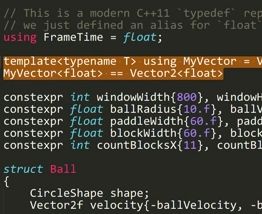C++ User Group Meetings in December
Well, December brings a few more meetings of C++ User Groups this year:
C++ User Group Meetings in December
From the article:
This December feels a bit special, as my own user group was founded 2 years ago. We'll celebrate with cake and a C++ quiz! Also, a few other C++ User Groups do meet:
11.12 C++ User Group San Francisco/Bay Area
12.12 C++ User Group San Antonio -- 2 talks
12.12 C++ User Group London
12.12 C++ User Group Dresden -- virtual inheritance & CRTP
17.12 C++ User Group Berlin -- the C++11 Memory Model
18.12 C++ User Group Düsseldorf -- 2 years! We'll have cake and a C++ quiz!

 Only 3 days left before the
Only 3 days left before the  Hello again,
Hello again,  The C++11 standard makes a distinction between acquire and release fences and acquire and release operations. The differences are important and can affect correctness as well as performance.
The C++11 standard makes a distinction between acquire and release fences and acquire and release operations. The differences are important and can affect correctness as well as performance.